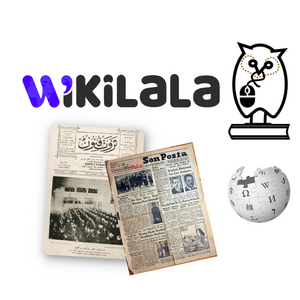Wikipedia Library has a new partner that would greatly support those editors editing wiki projects about Ottoman history: Wikilala.

Wikilala is a Turkey-based digital repository and search engine with a very ambitious purpose: collecting and digitizing all printed Turkish documents printed between 1729 when the first print book was produced in in Turkey and 1928 when the Ottoman Turkish alphabet based on Arabic script was replaced with Latin-based modern Turkish alphabet. Additionally, tens of early modern Republican period papers were uploaded as well including Ulus, Akşam, Milliyet and many others. The initiative resulted with repository consisting more than tens of thousands of documents in printed form, including more than one million pages of newspapers and journals along with thousands of books concerning the history, culture, sociology and geography of the Ottoman Empire and early modern Turkey; and now all is freely accessible to Wikipedia Library users
But that’s not all. The most important feature of Wikilala is its search mechanism working with both Arabic and Latin alphabet and therefore allowing users to search the repository and find relevant information, even if they can not read Arabic script. This feature is expected to be a great support for Wikipedians as well.
This partnership was made possible with the when Wikilala founder Sadi Özgür was contacted by some members of Wikimedia Community User Group Turkey. Sadi Özgür told our colleagues that Wikilala provides a detailed account of social and cultural life in Ottoman Empire, political events and literary works of the period; and they are very excited to possibility of seeing Wikimedia projects improved using the material provided at Wikilala.
Please find Wikilala partner page at Wikipedia Library here: Partner page

Can you help us translate this article?
In order for this article to reach as many people as possible we would like your help. Can you translate this article to get the message out?
Start translation